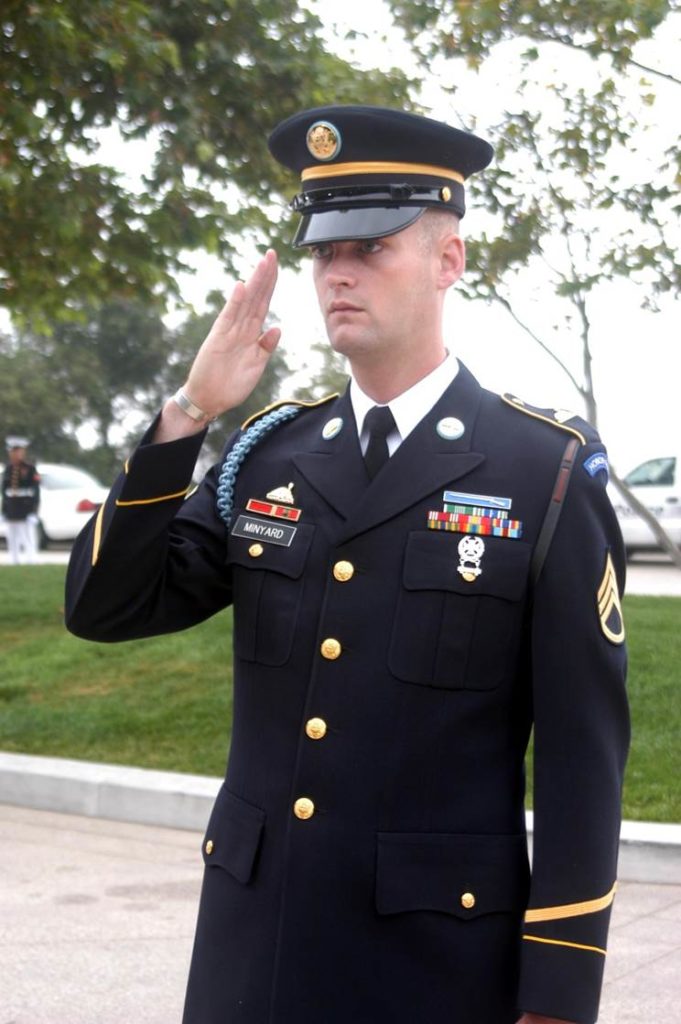
Justin Minyard
Medically retired U.S. Army Sgt. Justin Minyard, a decorated 13-year veteran who was a first responder after the September 11 attack on the Pentagon and who has served in both Afghanistan and Iraq, is now embarking on the most important mission of his life: educating injured veterans and others about how medical technology can significantly improve quality of life.
Justin first hurt his back in 2001 at the Pentagon, lifting and moving rubble in the search for survivors after American Airlines Flight 77 hit the building. As a result of those efforts, he sustained a serious back injury — damaged discs and fractured vertebrae. After back surgery for this initial injury, he deployed to the Middle East where he reinjured his back in combat missions but continued serving with the help of cortisone injections and pain pills. Minyard finally collapsed in 2008 after a grueling three-day mission and was sent home.
Back in the U.S., opioid therapy was the only option made available to Justin for his chronic, debilitating pain, which had enormous emotional and physical effects on him.
“This treatment plan was detrimental to both my health and my family life – it was a very difficult time,” he says.
Eventually, Justin and his wife found an interventional pain specialist at Fort Bragg who happened to be conducting a clinical trial of Spinal Cord Simulation (SCS) therapy, which consists of implanting a device that stops the brain from receiving pain signals.
“This device literally changed my life,” says Justin. “It not only enabled me to manage my pain effectively, but it gave me my life back and has allowed me to do things for and with my family that I stopped doing while on pain medication.”
In addition to SCS, Justin also used cycling as a means of rehabilitation.
“The combination of the device, cycling, and pure willpower helped pull me through,” says Justin. “It helped me so much that I founded an organization called Operation Shifting Gears, which helps other combat-wounded veterans who are looking for ways to rehabilitate themselves physically, emotionally and spiritually.”
Through extensive outreach and education, the organization provides all-encompassing support for veterans and helps them to re-adjust to civilian life, using cycling and other athletic activities. Justin is now educating injured veterans and others, including legislators on Capitol Hill, about the importance of continuing to support innovative new technologies to help people everywhere live healthier, more productive lives.